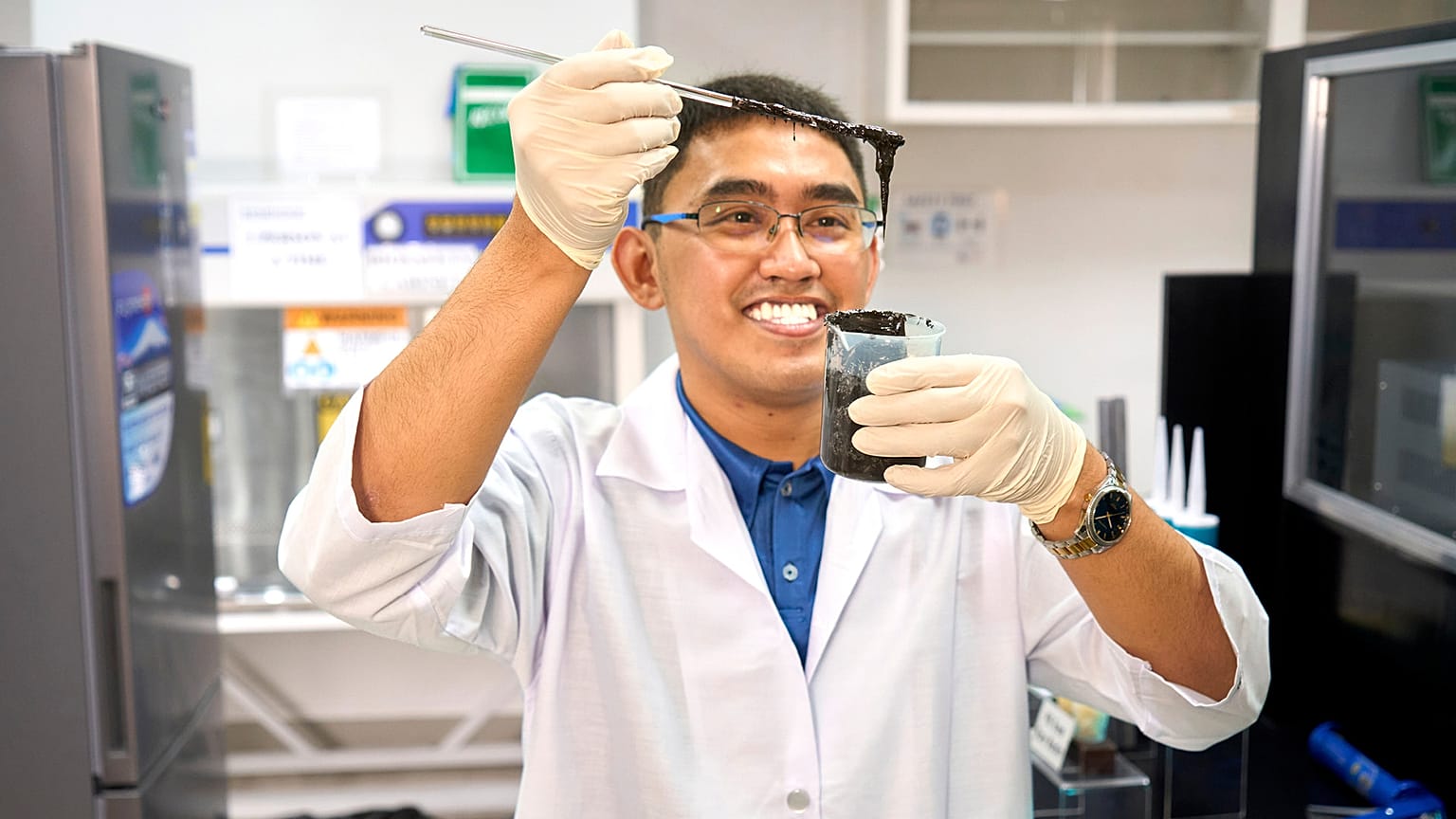Filipino engineer Mark Bantugon has created a biodegradable aircraft sealant from Pili tree resin, offering a safer, sustainable alternative to toxic adhesives.
At just 26, Filipino aeronautical engineer Mark Kennedy Bantugon is already changing how we think about aviation maintenance. With his invention Pili Seal®, a sustainable aircraft sealant made from agricultural waste, he’s offering a safer, biodegradable alternative to conventional adhesives used in the aerospace industry – many of which contain hazardous petrochemical ingredients.
His innovation has earned him a spot among the top 10 global winners of the Young Inventors Prize 2025, awarded by the European Patent Office (EPO).
Rethinking aircraft sealants with natural alternatives
For over half a century, polysulfide-based sealants have been standard in aircraft manufacturing and repair, particularly for sealing fuel tanks. But these products often pose serious health and environmental risks. They can cause skin and respiratory irritation, and their disposal requires special handling due to their chemical composition. Pili Seal® challenges this norm by using the resin of the Pili tree, a substance that is normally discarded as waste by the food and perfume industries in the Philippines.
"I am addressing two different pain points," Bantugon explains. "The first one is the drawbacks of commercial sealants and adhesives. The second one is the 155 million kilograms of annual Pili resin waste. With my Pili Seal, it tackles two different problems with one solution."
Made from this naturally sticky resin, combined with a solvent and hardening agent, Pili Seal® performs under extreme conditions – withstanding fuel exposure, heat, and pressure. It has already passed multiple industry-standard flammability tests, proving its potential for aviation use. But Bantugon sees far wider applications. “This product is effective in various material applications – metals, wood, glass, ceramic. For example, if you have roof holes, you can use it to prevent leakages,” he says.
From rural roots to aerospace innovation
Raised in Batangas, a rural province in the Philippines, Bantugon grew up watching his father work the land and his mother teach in the local school. Early memories of patching leaky roofs with chewing gum sparked his fascination with adhesives. That curiosity followed him into his studies in aeronautical engineering and later during an internship at Lufthansa Technik Philippines, where he encountered firsthand the health risks posed by traditional aircraft sealants.
Determined to find a safer, greener alternative, Bantugon spent years experimenting with six types of tree resin before selecting Pili. He refined 84 different formulations before landing on the one that worked. The result: a bio-based sealant that supports a circular economy and could offer a new revenue stream for Philippine farmers.
In 2024, Bantugon founded Pili AdheSeal Inc. to bring the product to market. His work directly contributes to UN Sustainable Development Goal 9 (Industry, Innovation & Infrastructure) – but it’s also deeply personal. “Success,” he says, “is best experienced when shared.”
Bantugon hopes that Pili Seal® will soon achieve international certification, opening doors for global aviation partnerships. He’s also exploring collaborations with construction and automotive industries, aiming to scale production and create sustainable jobs in rural Filipino communities.



















